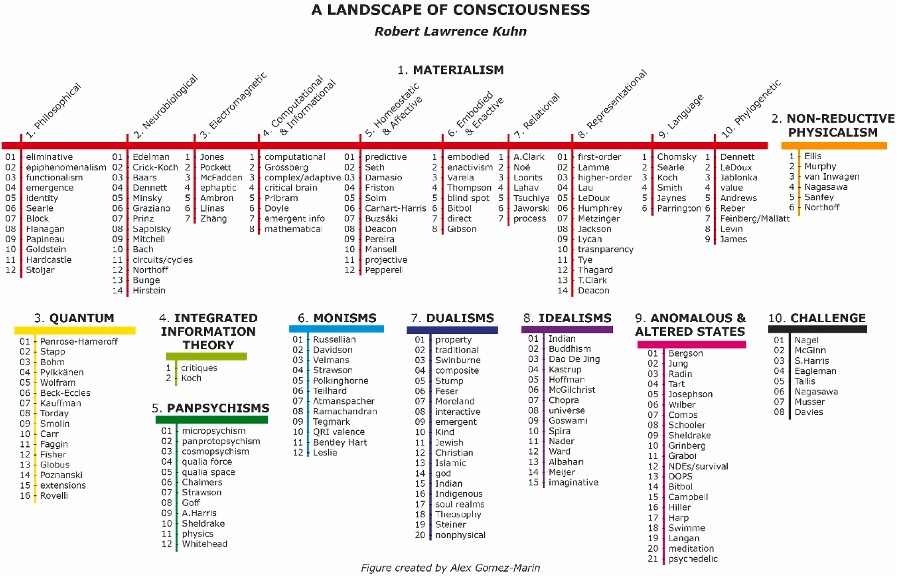Summary: A groundbreaking new study presents the first systematic categorization of competing theories about the nature of consciousness. Robert Lawrence Kuhn, drawing from over two decades of expert interviews, has developed a comprehensive framework organizing diverse explanations from materialist to non-physicalist approaches, offering new perspectives on one of science’s most profound mysteries. Journal: Progress in Biophysics and Molecular Biology, August 2024, DOI: 10.1016/j.pbiomolbio.2023.12.003 Reading time: 4 minutes
The Grand Question of Consciousness
“Out of meat, how do you get thought? That’s the grandest question.”
This provocative query from philosopher Patricia Churchland captures the central mystery that has driven Robert Lawrence Kuhn’s decades-long exploration into the nature of consciousness. As the producer and host of PBS’s Closer to Truth, Kuhn has spent years diving deep into this fundamental question of existence.
A Lifetime of Investigation
The new study represents the culmination of an extraordinary research journey.
“I have discussed consciousness with over 200 scientists and philosophers,” says Kuhn, who brings his background in neurophysiology to the investigation. “Landscape is the product of a lifetime.”
The research focuses specifically on phenomenal consciousness – our inner awareness and subjective experiences. Kuhn’s taxonomy organizes theories across a spectrum from purely materialist explanations to non-physicalist approaches, including:
- Materialist Theories (ranging from philosophical to evolutionary)
- Non-Reductive Physicalism
- Quantum Theories
- Integrated Information Theory
- Various forms of Panpsychism, Monism, and Dualism
Beyond Classification to Understanding
The project’s scope extends beyond mere categorization.
“My purpose must be humble: collect and categorize, not assess and adjudicate,” says Kuhn. “Seek insights, not answers.”
This systematic organization serves as a foundation for exploring deeper questions about consciousness, including artificial intelligence, virtual immortality, and the possibility of survival beyond death.
“Understanding consciousness at this point cannot be limited to selected ways of thinking or knowing, but should seek expansive yet rational diversity,” Kuhn explains.
Personal Evolution Through Research
The extensive process of creating this taxonomy – which resulted in an article of approximately 175,000 words – led Kuhn to evolve his own thinking about consciousness. While he shares his current perspectives, he maintains scholarly humility:
“Smart, serious folks believe radically different theories; what I believe doesn’t much matter.”
Further Reading:
- Journal Article: A Landscape of Consciousness: Toward a Taxonomy of Explanations and Implications
- FQxI Article: “A Landscape of Consciousness”
Enjoy this story? Get our newsletter! https://scienceblog.substack.com/
If our reporting has informed or inspired you, please consider making a donation. Every contribution, no matter the size, empowers us to continue delivering accurate, engaging, and trustworthy science and medical news. Independent journalism requires time, effort, and resources—your support ensures we can keep uncovering the stories that matter most to you.
Join us in making knowledge accessible and impactful. Thank you for standing with us!

